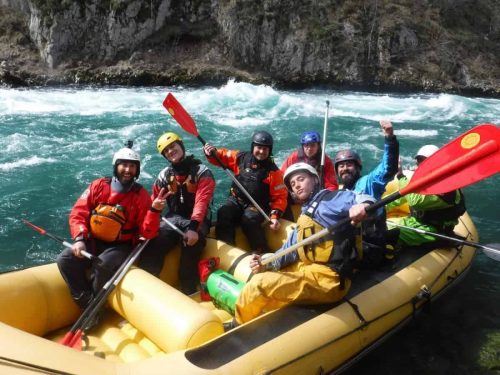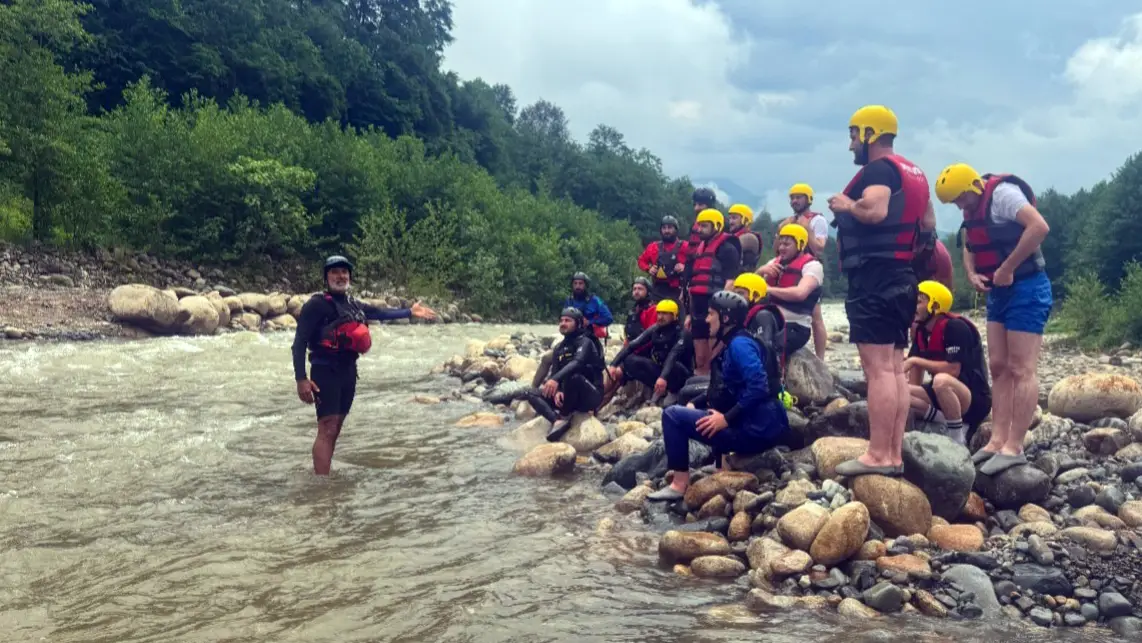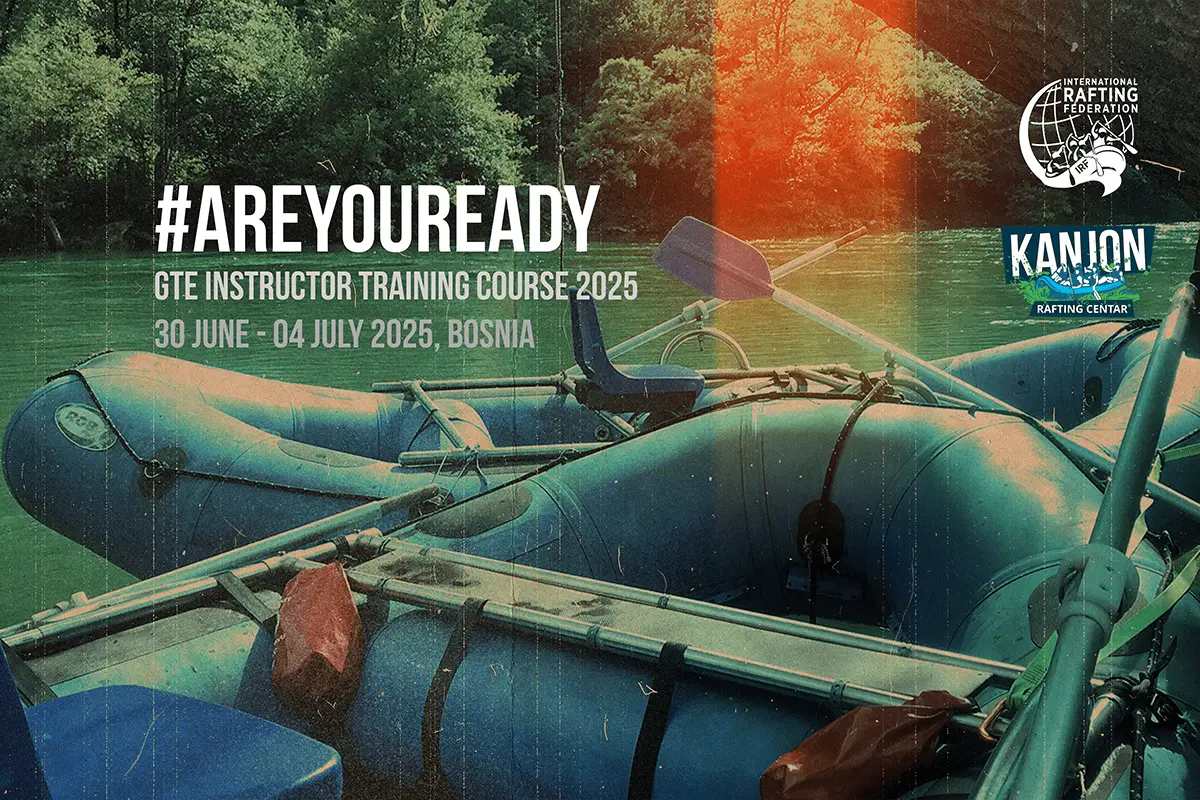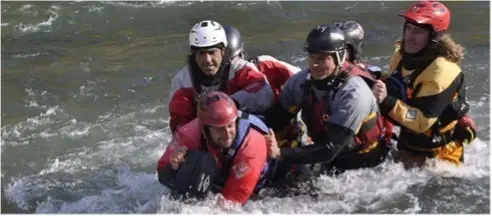IRF Instructor workshop – Bosnia 2018
 I had been following the weather in Bosnia for a week prior to the start of the workshop. The forecast did not look good unless you were going skiing, lots of snow was forecast. So I pre-warned the course students to prepare for cold weather.
I had been following the weather in Bosnia for a week prior to the start of the workshop. The forecast did not look good unless you were going skiing, lots of snow was forecast. So I pre-warned the course students to prepare for cold weather.
This was going to be a busy 6 days. We had 17 students from around the world descending on the Tara & Piva rivers to participate in an IRF workshop. The candidates had travelled from Austria, Canada, Chile, Ecuador, Croatia, Argentina, Romania, Montenegro & Bosnia. The students were made up of Instructor candidates, through to trainees.

As the numbers were so high I needed to employ another instructor in order to keep the quality of instruction & safety supervision at a high level. Having worked with Gaspar on many other workshops I knew he was the man for the job.
Having 7 instructor candidates meant that the standards were going to be high which was great for all involved. The location of the workshop turned out to be an excellent choice. The Tara River was bank full with lots of rapids for the class 3 students to demonstrate their skills on. For the class 4 candidates we ventured onto the less run neighbour of the Tara River, the Piva River.

As many of us may know, the rafting on the Tara River has its problems. Besides 2 proactive companies the safety standards among the other 50 rafting companies on the Tara are questionable. A lack of access to quality training & equipment has left some of the operations looking like something from the dark ages. This workshop was going to be a chance for some of the local guides to be exposed to best practices from around the globe.

Step forward Mirko & Dimitrje, two local company owners striving to raise the standards on the Tara to benefit everyone. Tara Raft owned by Mirko & his family had kindly agreed to host the workshop that would be our base for the week. Having worked with Mirko before I knew they would take care of us and that they did. Each day after we came off the river cold, wet and tired we were greeted by a roaring fire and home cooking to die for courtesy of Anja and her kitchen team. Nothing was too much for them.


During days 1 & 2 all of the candidates had to pass the standard IRF guide assessment on either class 3 or class 4 water, depending on their experience. The assessment areas were:
- Pre departure safety demonstration.
- Rafting manoeuvres & crew management.
- Personal white water swimming skills.
- Timed throwbag test.
- Timed flip drill test.
- Timed ropework test.
- Completion of the IRF written paper.

Once the guide assessments were successfully completed the students with more experience were invited to take a trip leader assessment. We had 7 TL candidates which meant we needed 2 days to get through all of the emergency scenario assessments. Myself and Gaspar took it in turns to set up and assess the scenarios. The scenarios were a mixture of static and dynamic emergency scenarios that could happen on any commercial trip.
The scenarios are always a highlight of any workshop as this is where the guides learn lots from each other. Even I myself learnt on this workshop that the versatility of a pack raft as a rescue tool is a true asset on a trip.
 Some of the guides had a taken a Rescue 3 WRT class with me before the workshop, 9 days of being wet, cold, tired & hungry was starting to take its toll. On the final morning a motivational speech was needed to re-motivate the guides. The theme of the talk was “Dig deep & keep going”.
Some of the guides had a taken a Rescue 3 WRT class with me before the workshop, 9 days of being wet, cold, tired & hungry was starting to take its toll. On the final morning a motivational speech was needed to re-motivate the guides. The theme of the talk was “Dig deep & keep going”.
With support from each other the students soon turned those frowns upside down as the sun came out on the mighty Piva rRver.
 The final day of the workshop was the opportunity for the instructor candidates to present their assessment theory lessons. A wide spectrum of subjects were presented with some real thought and planing evident.
The final day of the workshop was the opportunity for the instructor candidates to present their assessment theory lessons. A wide spectrum of subjects were presented with some real thought and planing evident.
The IRF now have 5 new Provisional instructors & 9 new guides. But most of all a gang of international rafters got together and shared their love and knowledge of rafting in an awesome environment.




